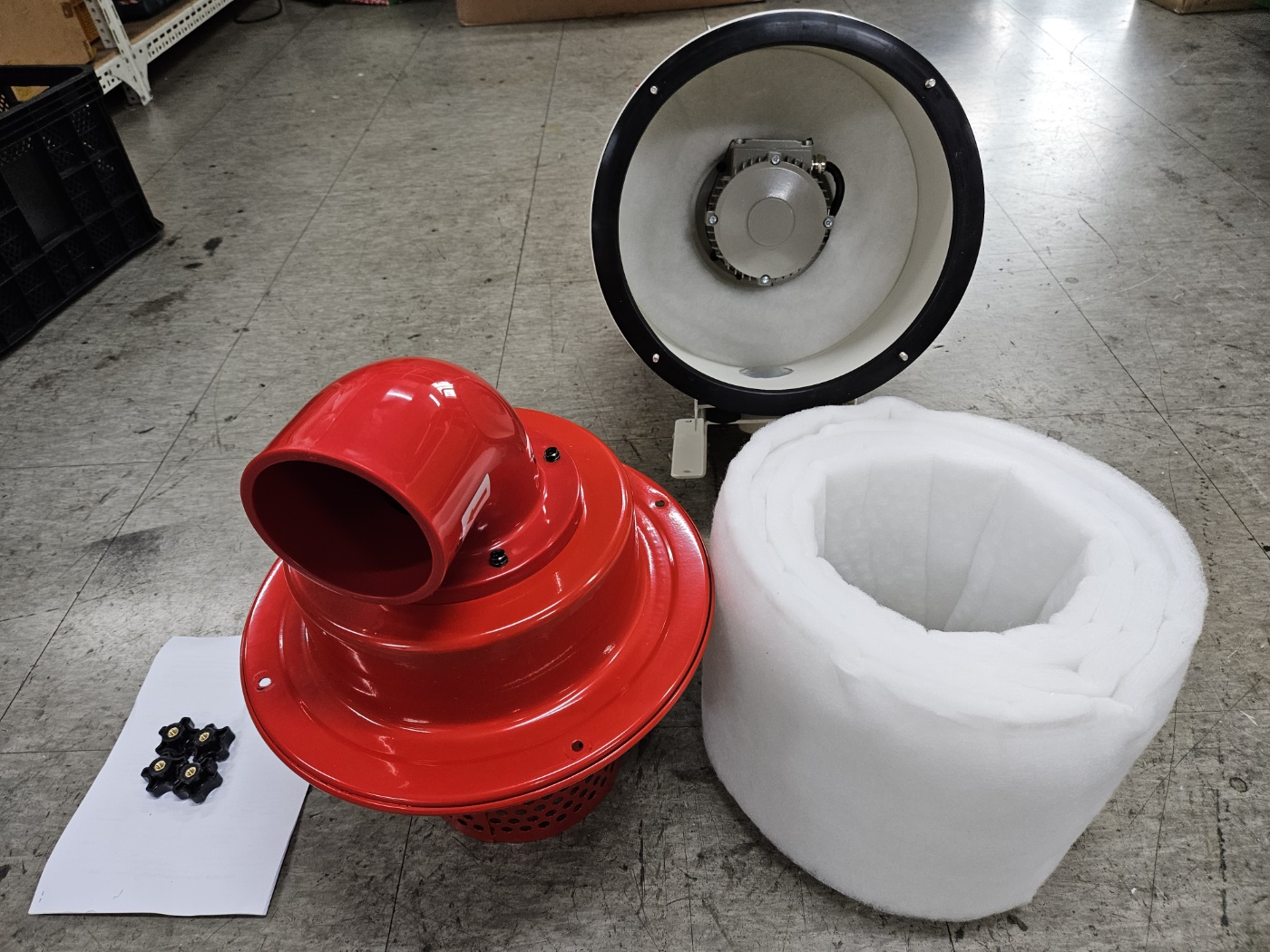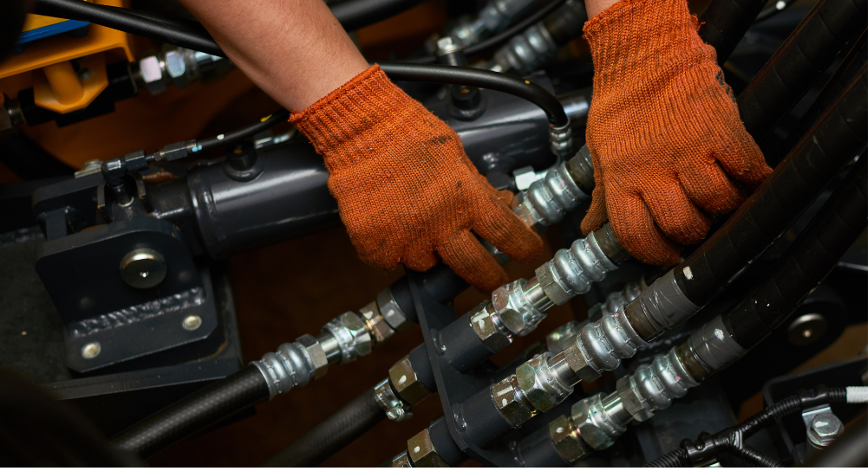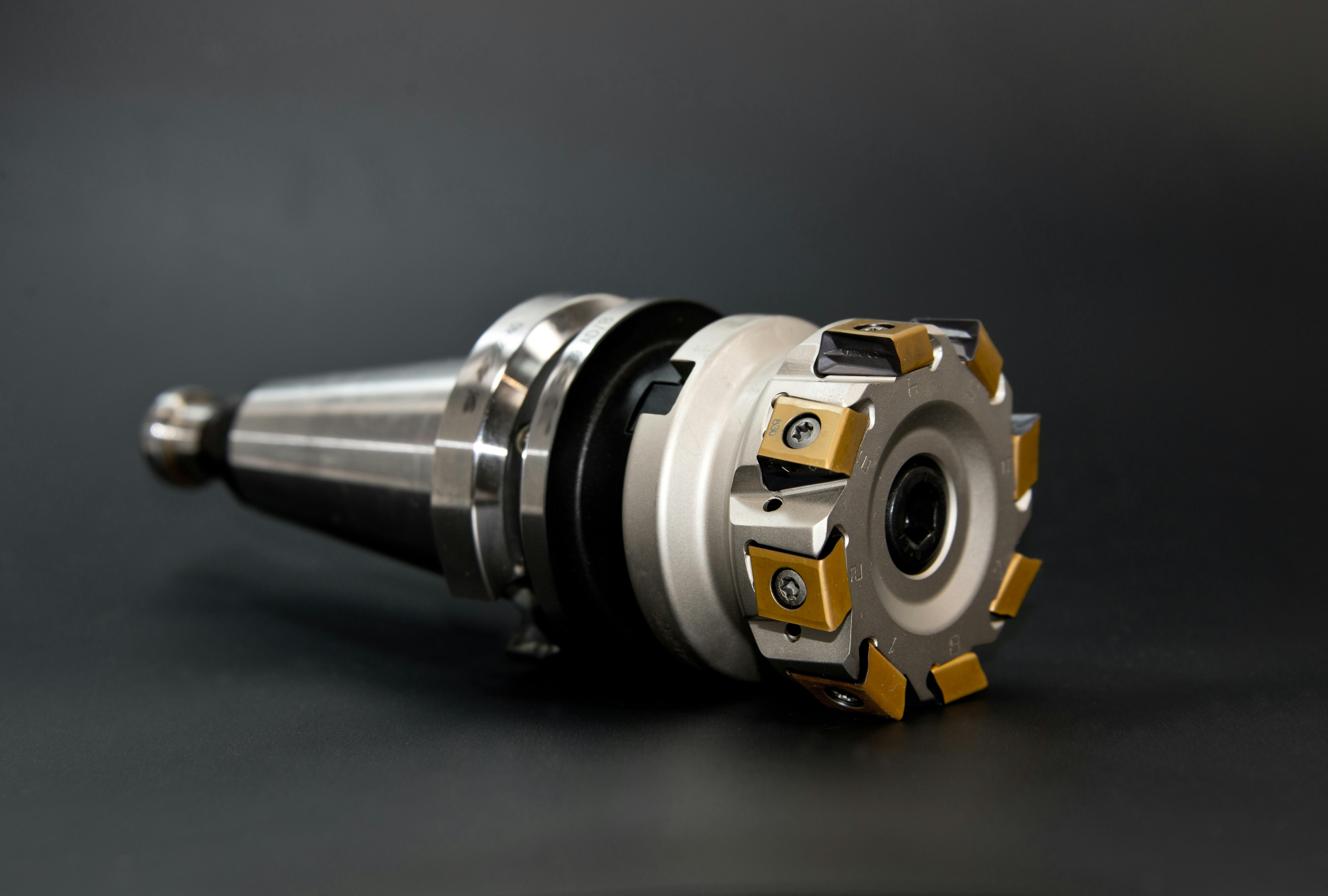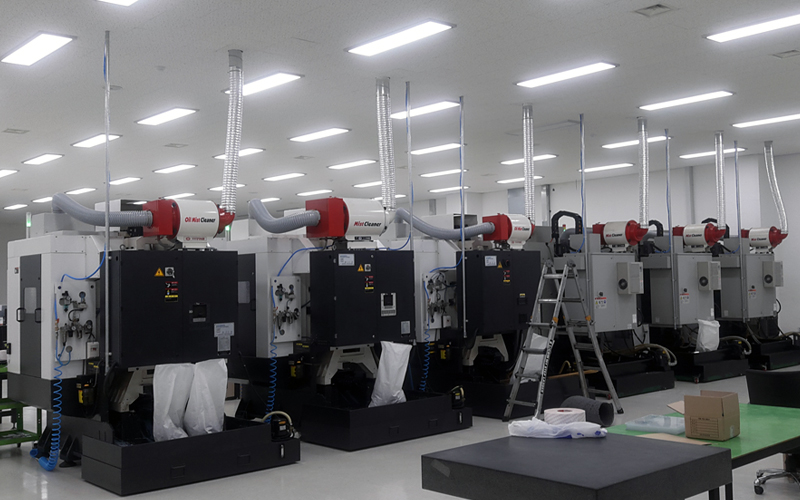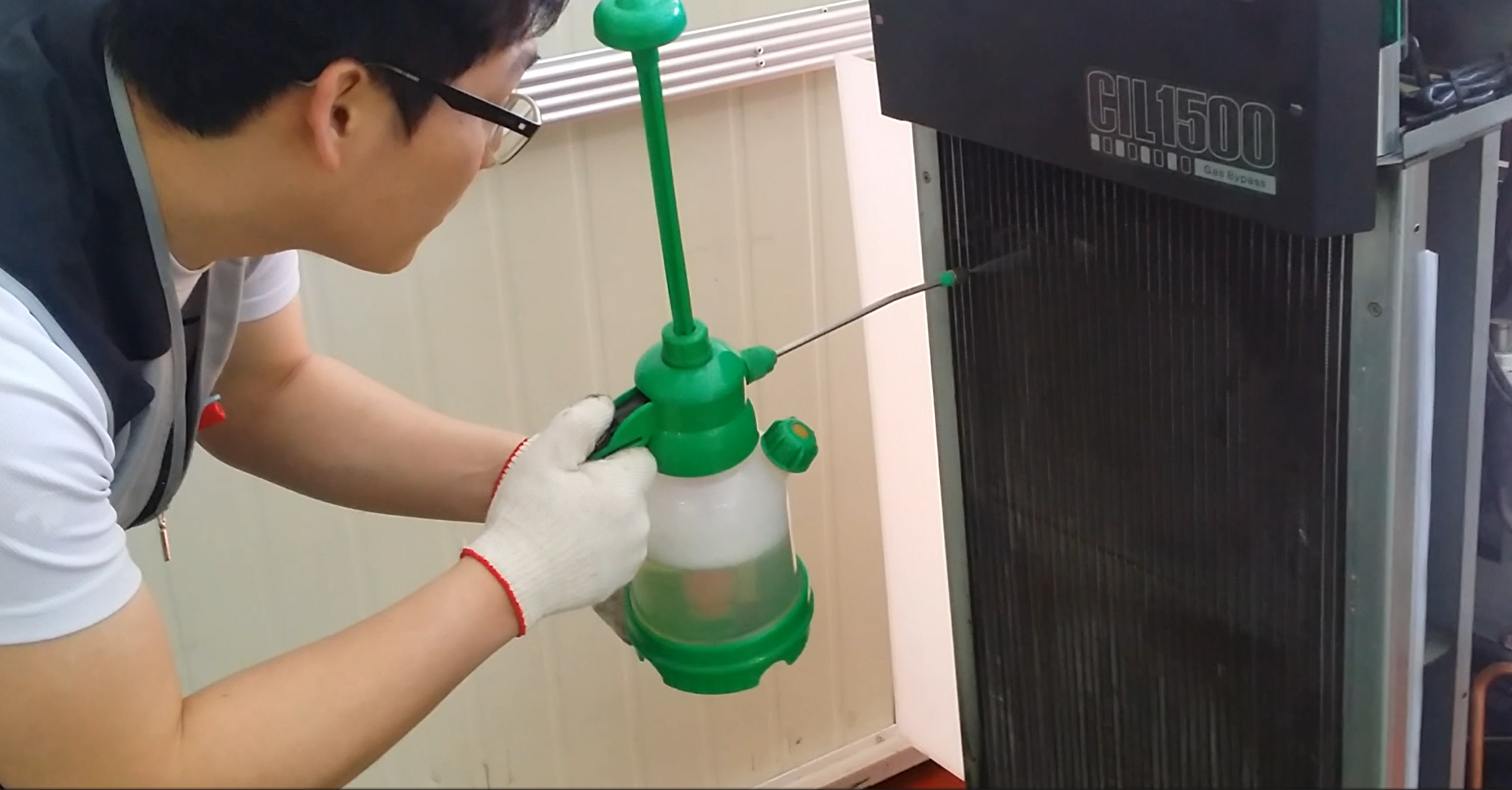 31Jan
31Jan
IMPROVING THE PRODUCTIVITY OF AN OIL CHILLER THROUGH MAINTENANCE
How do oil chillers maintain oil viscosity in CNC machines?
When working properly, a machine generates heat and hydraulic oil is used in the cooling systems.
The dissipative nature of the oil chiller in oil cooler machines decreases oil viscosity. In this case, oil cooling is necessary. The hydraulic oil chiller is one of the most common industrial applications that control the temperature of CNC machine tools. Increasing viscoelasticity causes oil to leak inside machine components, causing varying mechanical damage and internal leaks.
Hydraulic oil chillers increase oil viscosities by dispersing heat generated during machine manufacturing. Oil chillers cool the hydraulic oil and maintain the oil viscosity to be controlled. High-quality oil chillers would be helpful for heat absorption as a temperature control.
As a conventional method, an oil chiller also helps the longevity of the hydraulic system by chilling oil through heat dissipation using a cooling fan, an expansion valve, and a cooling medium.
How do you maintain your chiller in optimal condition?
As a machine runs, hydraulic oil temperature could increase within the factory facility. In the hot summer, we run air conditioning to decrease the temperature or increase outside air circulation to flow. This is how chillers work, which are essential to circulating refrigerant to maintain the oil temperature at the same level and provide stable production quality.
We got advice from the manager of the R&D team for Kwangrim, Mr. Jung.
Chiller Maintenance
While the basic mechanisms of an oil chiller are similar for all types of industrial machinery, regular maintenance assures its function as outlined in the specifications. Manufacturers strongly advocate the scheduled inspections of cooling components and offer instructions on its operation.
Which part should be maintained regularly?
First, check your condenser coils and clean them up regularly
As a chief service director, Mr. Jung, emphasizes that cleaning the condenser coil is the most important for chiller cooling capacity. The condenser is one of the main components equipped with the oil chiller. To maintain the optimal cooling capacity, chillers should be well maintained, including dust removal from the filters.
"To prevent a complete mess caused by a dirty condenser unit, the factory has set an alarm for the FIL(Filter) at 600 hours of continuous operation for the oil chiller systems. We strongly recommend cleaning the condenser and checking the filters of the chiller to prevent machine downtime. "
"Adding one layer in front of the condenser would be helpful to prevent dirt from getting on the cooling process."
Based on the surrounding environment, the contamination speed could vary.
Second, check your suction filter in the coolant tank regularly
Product link: Suction Filter PK-SS-06(#100) (industrynestparts.com)
The suction oil filter is assembled inside the coolant tank of a machine tool or, in the case of products with a tank, it is installed inside the oil tank. The suction oil filter plays a vital role in maintaining the health and efficiency of machine tools and equipment.
Positioned strategically inside the coolant tank or oil tank of a machine tool, this filter protects against impurities that could compromise the system's functionality.
The suction filter is installed to prevent impurities such as swarf and chips from entering the system through the motor or hydraulic hose lines. In practical terms, the suction filter acts as a barrier, preventing unwanted elements such as swarf and chips from infiltrating the system through motor or hydraulic hose lines.
By doing so, it safeguards the integrity of the hydraulic oil chiller, allowing it to monitor the impurity levels in the cooling oil accurately. This, in turn, ensures that the circulation system operates seamlessly.
However, like any other component, the suction filter is not immune to wear and tear. A common issue arises when the filter becomes clogged, resulting in a reduced flow of oil. The suction filter lets the hydraulic oil chiller sense the impurity status of the cooling oil and enables the machinery to sense that the circulation system works properly.
This decrease in flow can have cascading effects, notably impacting the cooling capacity.
The consequence? Compromised accuracy in cutting materials and potential problems stemming from a lower flow rate into the oil chiller.
Find the best cooling system for your machinery
InudstryNest offers a wide range of energy-efficient oil coolers and oil cooler components. If you have oil coolers manufactured overseas, our community of engineers can help you solve technical problems related to oil coolers and assist you in finding the main components for the CNC machining center.
Reference
Conclusion
As we conclude this journey, remember that piston pumps are more than mechanical components – they're enablers of performance enhancement, waste reduction, and process refinement. Explore more of these types of product at the hub of industrial parts - IndustryNest.

